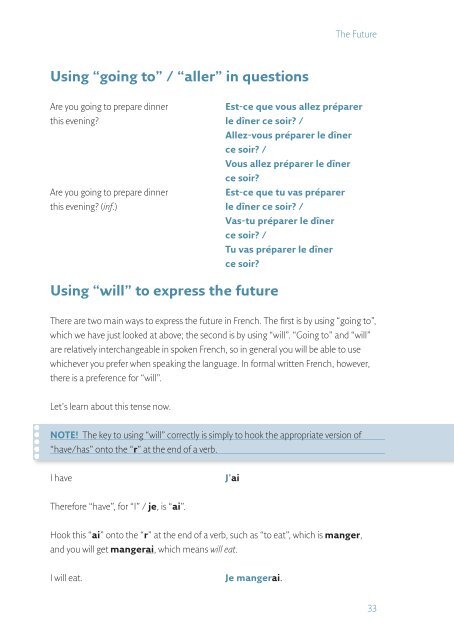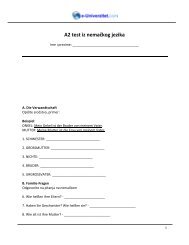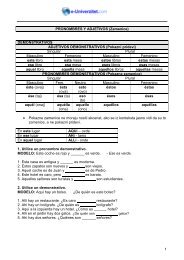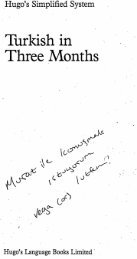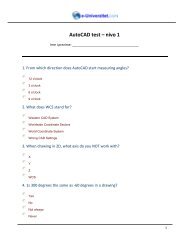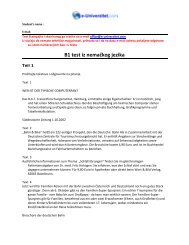Collins Paul Noble French booklet.pdf - Centar za edukaciju i ...
Collins Paul Noble French booklet.pdf - Centar za edukaciju i ...
Collins Paul Noble French booklet.pdf - Centar za edukaciju i ...
Create successful ePaper yourself
Turn your PDF publications into a flip-book with our unique Google optimized e-Paper software.
Using “going to” / “aller” in questions<br />
The Future<br />
Are you going to prepare dinner Est-ce que vous allez préparer<br />
this evening? le dîner ce soir? /<br />
Allez-vous préparer le dîner<br />
ce soir? /<br />
Vous allez préparer le dîner<br />
ce soir?<br />
Are you going to prepare dinner Est-ce que tu vas préparer<br />
this evening? (inf.) le dîner ce soir? /<br />
Vas-tu préparer le dîner<br />
ce soir? /<br />
Tu vas préparer le dîner<br />
ce soir?<br />
Using “will” to express the future<br />
There are two main ways to express the future in <strong>French</strong>. The fi rst is by using “going to”,<br />
which we have just looked at above; the second is by using “will”. “Going to” and “will”<br />
are relatively interchangeable in spoken <strong>French</strong>, so in general you will be able to use<br />
whichever you prefer when speaking the language. In formal written <strong>French</strong>, however,<br />
there is a preference for “will”.<br />
Let’s learn about this tense now.<br />
NOTE! The key to using “will” correctly is simply to hook the appropriate version of<br />
“have/has” onto the “r” at the end of a verb.<br />
I have J’ai<br />
Therefore “have”, for “I” / je, is “ai”.<br />
Hook this “ai” onto the “r” at the end of a verb, such as “to eat”, which is manger,<br />
and you will get mangerai, which means will eat.<br />
I will eat. Je mangerai.<br />
33


